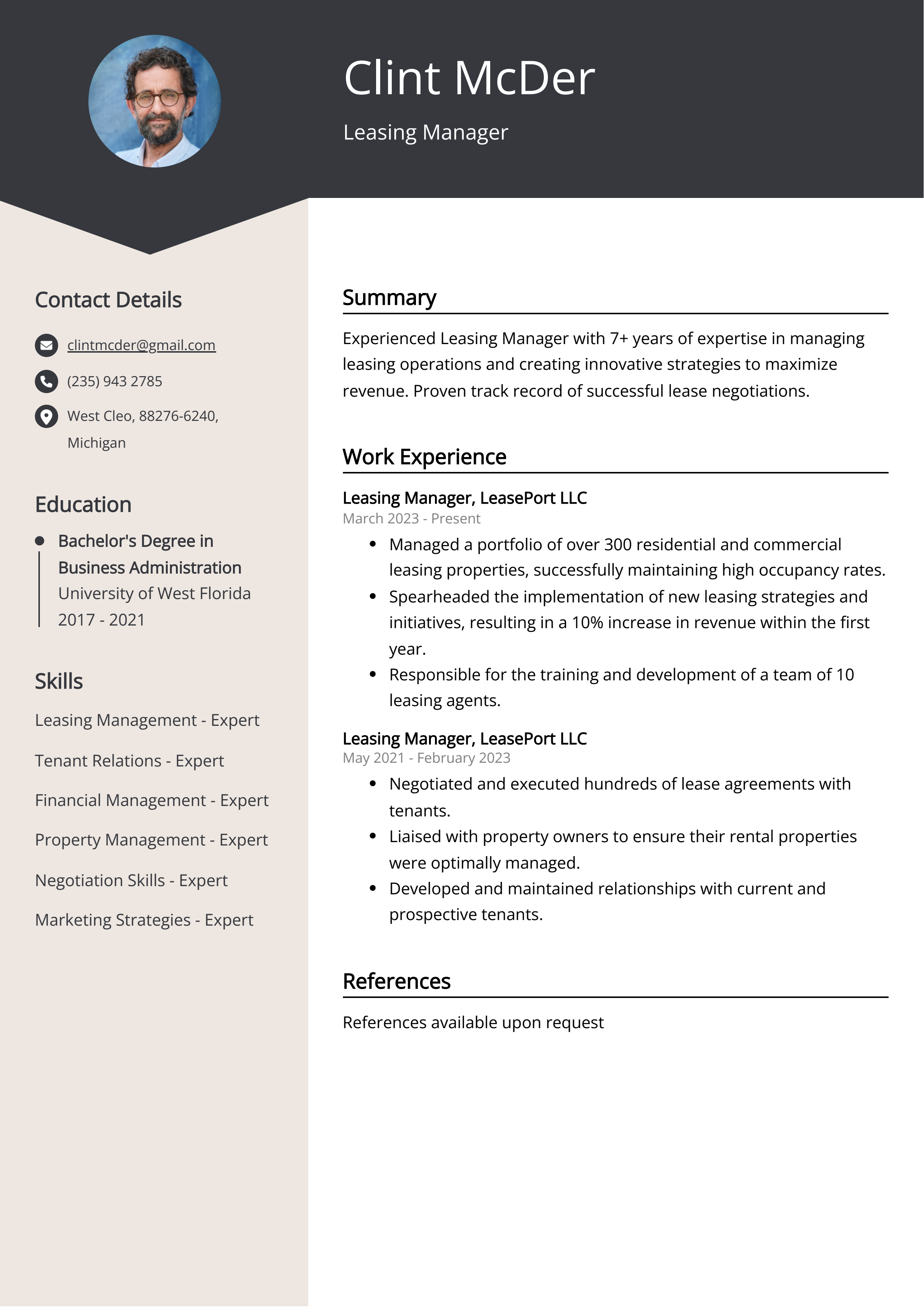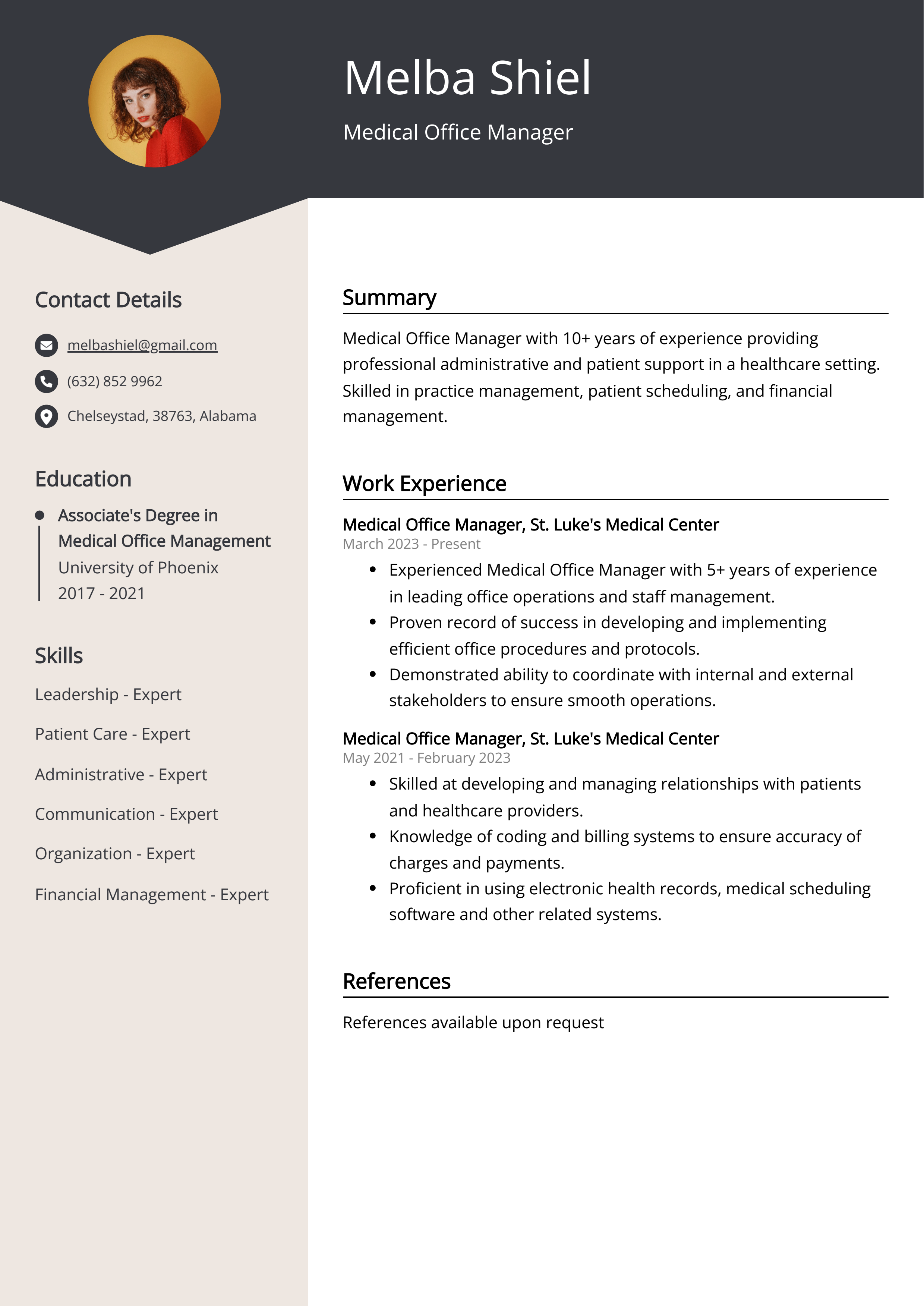
A leasing manager job description encompasses the duties, responsibilities, and qualifications required for an individual managing leasing operations within a commercial or residential property. This role involves overseeing the leasing process, managing tenant relationships, and ensuring compliance with legal and financial regulations.
Leasing managers play a crucial role in maximizing property revenue and maintaining positive tenant relations. They are responsible for developing and implementing leasing strategies, negotiating lease terms, and resolving tenant issues. Additionally, they ensure compliance with fair housing laws and other relevant regulations.
Main article topics that delve deeper into the leasing manager job description include:
- Duties and responsibilities
- Qualifications and experience
- Skills and competencies
- Salary and benefits
- Career advancement opportunities
1. Leasing
The leasing aspect is a cornerstone of the leasing manager job description. Leasing managers are entrusted with the responsibility of maximizing property revenue through effective leasing strategies. This involves analyzing market trends, identifying target tenants, and developing leasing campaigns to attract potential occupants.
Negotiating lease terms is a crucial skill for leasing managers. They must possess a thorough understanding of lease agreements, including rent structure, lease duration, renewal options, and termination clauses. By skillfully negotiating lease terms, leasing managers can secure favorable conditions for both the property owner and the tenant.
Closing deals with potential tenants is the ultimate objective of the leasing process. Leasing managers must be adept at building rapport, addressing tenant concerns, and guiding them through the leasing process. They also ensure that all necessary paperwork is completed accurately and on time.
In summary, the leasing aspect of the leasing manager job description is essential for driving property revenue, maintaining occupancy levels, and building strong tenant relationships. Leasing managers play a pivotal role in the success of commercial and residential properties.
2. Marketing
Marketing plays a critical role in the leasing manager job description. Effective marketing strategies are essential for attracting and retaining tenants, which directly impacts property revenue and occupancy levels. Leasing managers are responsible for developing and implementing marketing campaigns that target potential tenants and showcase the property’s unique features and amenities.
Property advertising is a key marketing tactic used by leasing managers. They utilize various channels such as online listings, print advertising, and social media to reach a wider audience. By creating compelling property descriptions, showcasing high-quality photos, and highlighting the property’s location and amenities, leasing managers can generate interest and attract potential tenants.
Tenant events are another effective marketing strategy employed by leasing managers. These events provide an opportunity to engage with potential tenants, build relationships, and showcase the property firsthand. Open houses, property tours, and community gatherings are excellent ways to create a positive and encourage prospective tenants to lease.
Maintaining a strong online presence is essential for leasing managers in today’s digital age. They leverage websites, social media platforms, and online directories to connect with potential tenants and provide them with easy access to property information. By creating informative and visually appealing online content, leasing managers can attract and engage potential tenants, ultimately driving leasing success.
In summary, the marketing aspect of the leasing manager job description is crucial for driving property revenue, maintaining occupancy levels, and building strong tenant relationships. By implementing effective marketing strategies, leasing managers can effectively attract and retain tenants, ensuring the success of commercial and residential properties.
3. Management
Property management is an integral aspect of the leasing manager job description. Leasing managers are responsible for overseeing property maintenance, repairs, and renovations to ensure a positive tenant experience and maintain the property’s value. This involves coordinating with contractors, vendors, and maintenance staff to address tenant requests, resolve maintenance issues, and plan for long-term property improvements.
Effective property management is crucial for several reasons. First, it helps to maintain the property’s condition and prevent costly repairs in the future. By addressing maintenance issues promptly, leasing managers can extend the lifespan of the property and minimize the risk of major breakdowns. Second, it enhances tenant satisfaction and retention. Tenants are more likely to renew their leases and refer others to the property if they are satisfied with the living environment and the responsiveness of the management team to their needs.
In practice, leasing managers may encounter various challenges related to property management. These could include dealing with emergency repairs, managing tenant complaints, and overseeing major renovations. However, by developing strong relationships with contractors and vendors, implementing preventive maintenance plans, and communicating effectively with tenants, leasing managers can effectively address these challenges and ensure a positive tenant experience.
In summary, the management aspect of the leasing manager job description is essential for maintaining the property’s condition, enhancing tenant satisfaction, and maximizing long-term property value. By effectively managing property maintenance, repairs, and renovations, leasing managers play a vital role in the success of commercial and residential properties.
4. Compliance
Compliance with fair housing laws, building codes, and other relevant regulations is an essential aspect of the leasing manager job description. It ensures that leasing managers operate within legal and ethical boundaries, protecting the rights of tenants and maintaining the integrity of the property. This section of content explores the connection between compliance and the leasing manager job description, highlighting its importance and practical significance.
Leasing managers are responsible for adhering to a wide range of regulations, including the Fair Housing Act, which prohibits discrimination based on race, color, religion, national origin, sex, familial status, and disability. They must also comply with building codes and zoning ordinances to ensure the safety and habitability of the property. Failure to comply with these regulations can result in legal penalties, fines, or even the loss of a leasing license.
Beyond legal compliance, adhering to fair housing laws and building codes is essential for maintaining a positive reputation and fostering a welcoming environment for tenants. By ensuring equal treatment and providing safe and habitable living spaces, leasing managers contribute to the overall success and sustainability of the property.
In practice, leasing managers demonstrate compliance through various tasks. They review and update lease agreements regularly to ensure they comply with current laws and regulations. They conduct thorough tenant screenings to prevent discrimination and maintain a diverse tenant base. They also work closely with maintenance staff to address any potential safety hazards or building code violations.
In summary, compliance with fair housing laws, building codes, and other relevant regulations is an integral part of the leasing manager job description. It ensures that leasing managers operate legally and ethically, protect the rights of tenants, and maintain the integrity of the property. By prioritizing compliance, leasing managers contribute to the success and sustainability of commercial and residential properties.
5. Communication
Communication is a vital component of the leasing manager job description. Effective communication fosters positive tenant relationships, resolves issues efficiently, and contributes to the overall success of the property. Leasing managers serve as the primary point of contact for tenants, handling a wide range of inquiries, concerns, and requests.
Open communication is essential for building trust and rapport with tenants. By being approachable, responsive, and transparent, leasing managers create an environment where tenants feel comfortable raising concerns and seeking support. This proactive approach helps to identify and address issues early on, preventing minor problems from escalating into larger disputes.
Promptly addressing tenant concerns is crucial for maintaining tenant satisfaction and preserving the property’s reputation. Leasing managers must prioritize timely responses, thoroughly investigating issues, and providing clear and actionable solutions. By demonstrating a commitment to resolving issues efficiently, leasing managers instill confidence in tenants and foster a sense of community.
Professional communication is equally important, ensuring that all interactions with tenants are respectful, courteous, and solution-oriented. Leasing managers must maintain a positive and professional demeanor, even in challenging situations. By communicating effectively and professionally, leasing managers create a positive and welcoming environment for tenants, enhancing the overall leasing experience.
In summary, the “Communication: Leasing managers maintain open communication with tenants, addressing any concerns or issues promptly and professionally” aspect of the leasing manager job description is essential for building strong tenant relationships, resolving issues efficiently, and maintaining a positive and professional environment. By prioritizing open, prompt, and professional communication, leasing managers contribute to the success and sustainability of commercial and residential properties.
Frequently Asked Questions about Leasing Manager Job Description
This section addresses common questions and misconceptions related to the leasing manager job description, providing informative answers in a serious and professional tone.
Question 1: What are the primary responsibilities of a leasing manager?
Leasing managers are responsible for overseeing all aspects of the leasing process, including developing leasing strategies, negotiating lease terms, managing tenant relationships, and ensuring compliance with legal and financial regulations.
Question 2: What qualifications and experience are required to become a leasing manager?
Typically, leasing managers possess a bachelor’s degree in business, real estate, or a related field, along with several years of experience in property management or leasing. Strong communication, negotiation, and analytical skills are also essential.
Question 3: What are the key challenges faced by leasing managers?
Leasing managers may encounter challenges such as managing a large portfolio of properties, negotiating complex lease agreements, resolving tenant disputes, and staying up-to-date with industry regulations.
Question 4: What are the career advancement opportunities for leasing managers?
Leasing managers can advance their careers by taking on additional responsibilities within their organization, pursuing professional development opportunities, and networking with industry professionals.
Question 5: What is the job outlook for leasing managers?
The job outlook for leasing managers is expected to be favorable in the coming years due to the increasing demand for rental properties and the growing complexity of leasing regulations.
Question 6: What are the key qualities and skills required for success as a leasing manager?
Successful leasing managers possess strong communication, interpersonal, and negotiation skills. They are also detail-oriented, organized, and have a deep understanding of the real estate industry.
In summary, the leasing manager job description encompasses a wide range of responsibilities and requires a unique blend of skills and experience. Leasing managers play a critical role in the success of commercial and residential properties, ensuring compliance, managing tenant relationships, and maximizing revenue.
Transition to the next article section: This concludes our exploration of frequently asked questions about the leasing manager job description. For further insights into the role and responsibilities of leasing managers, please refer to the comprehensive sections provided in this article.
Tips for Enhancing Your Leasing Manager Job Description
An effective leasing manager job description is crucial for attracting qualified candidates and ensuring a successful hiring process. Here are five tips to help you create a job description that stands out:
Clearly define the role and responsibilities.
Outline the core duties and expectations of the leasing manager, including leasing, marketing, management, compliance, and communication responsibilities.
Highlight the required qualifications and experience.
Specify the minimum qualifications, such as a bachelor’s degree in business or real estate and previous experience in property management or leasing.
Use strong action verbs.
Use active language and specific verbs to describe the desired skills and abilities, such as “negotiate,” “manage,” “resolve,” and “communicate.”
Quantify your expectations.
Whenever possible, use numbers or metrics to quantify the desired results, such as “increase occupancy rates by 5%” or “reduce tenant turnover by 10%.”
Proofread carefully.
Before posting your job description, proofread it carefully for any errors in grammar, spelling, or punctuation.
By following these tips, you can create a leasing manager job description that is clear, informative, and engaging. This will help you attract top talent and build a strong team of leasing professionals.
Key Takeaways:
- A well-written job description is essential for attracting qualified candidates.
- Clearly define the role and responsibilities of the leasing manager.
- Highlight the required qualifications and experience.
- Use strong action verbs and quantify your expectations.
- Proofread carefully before posting the job description.
Conclusion:
By implementing these tips, you can create a leasing manager job description that will help you find the best possible candidates for your organization.



